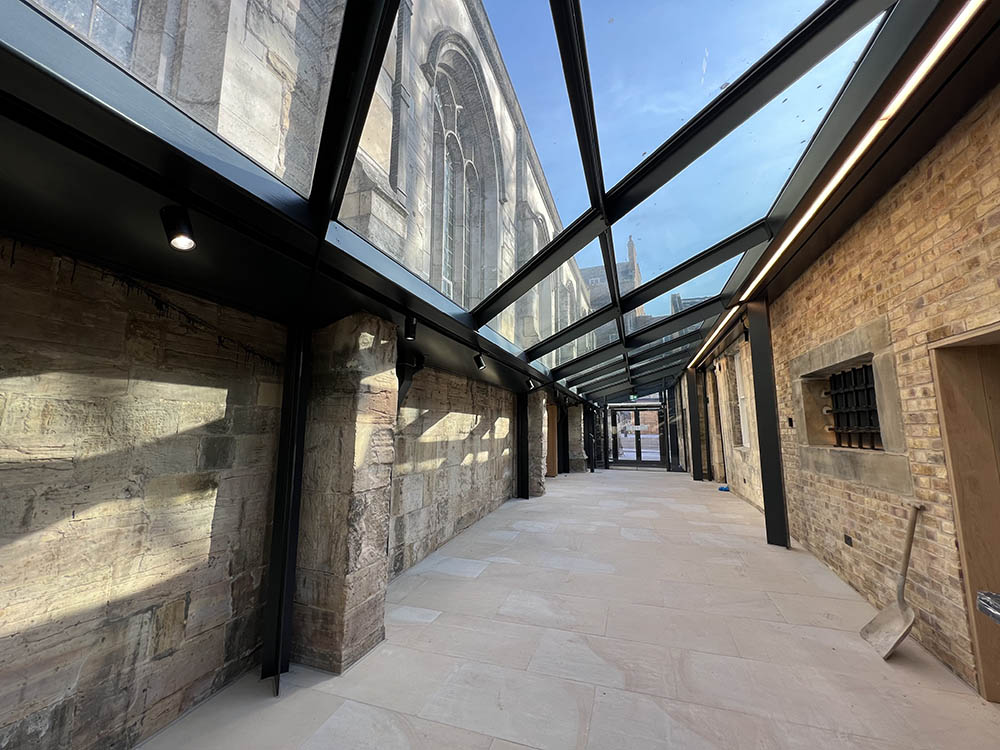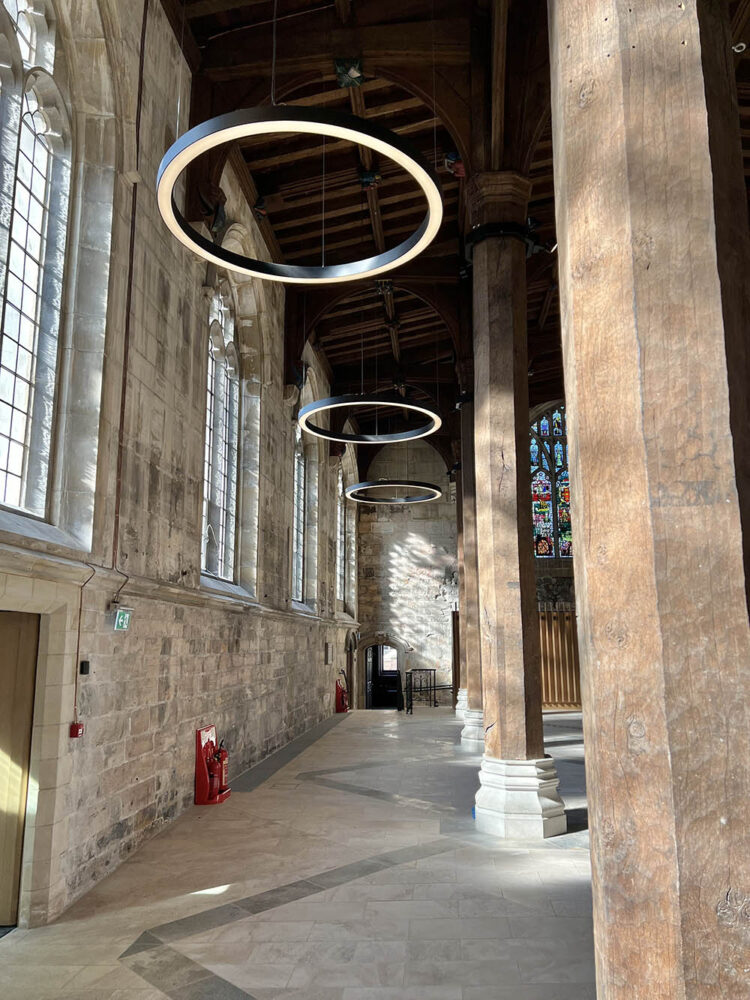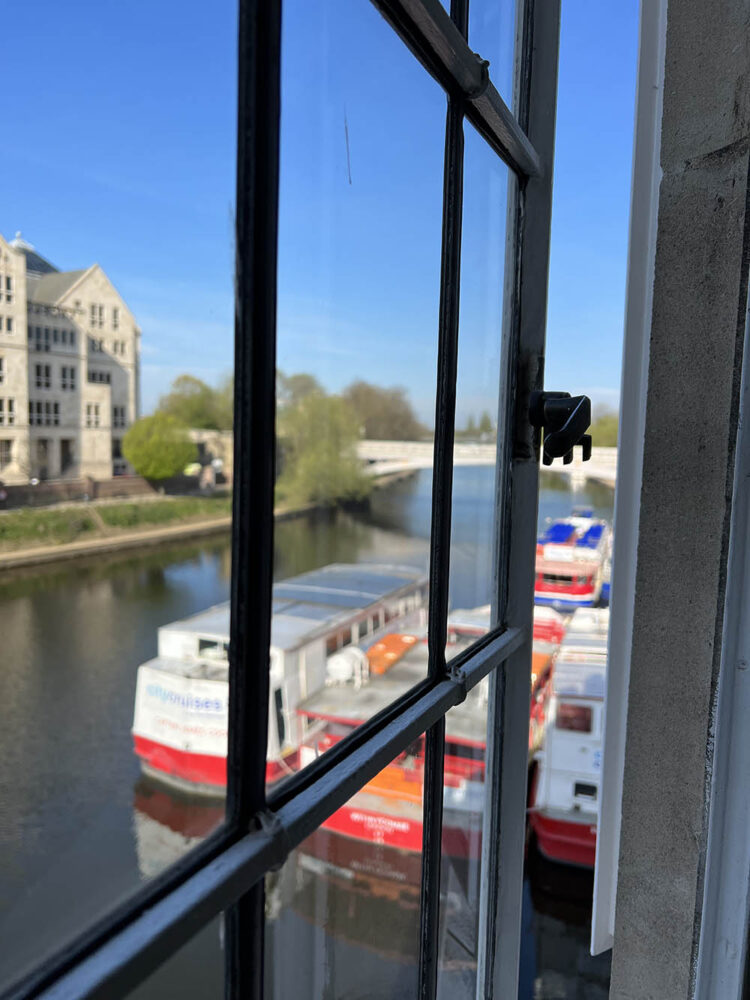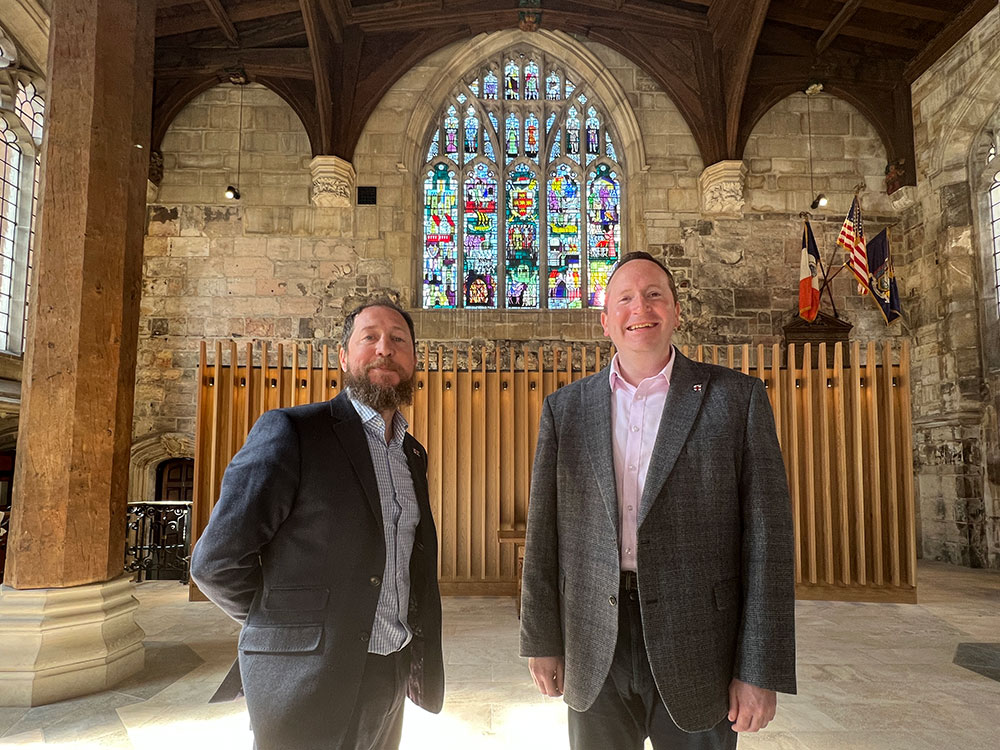A “once in a generation” restoration of one of York’s most historic buildings is just days away from being complete.
The Guildhall has been a constant in the city’s history since its construction in the fifteenth century, with the venue hosting royalty and playing a key role in shaping the nation’s history.
Incorporating modern elements around the historic core of the medieval Guildhall, the redevelopment includes high quality office space, a new riverside restaurant and space for community use.
Until now, the series of interconnected buildings have only received minor repairs since extensive rebuilding works were carried out following huge bombing damage in 1942.
Significant structural problems with the riverside tower, including subsiding and cracking, have now been fixed, and substantial investment has been made to protect the building from flooding. Air source heat pumps have been installed to heat and cool office rooms.
Council leader Keith Aspden said: “What we hope is that now the building is refurbished, it’s set to be a real centre of activity in York for hundreds of years to come.”
The cost to the council was estimated in 2020 to be £21.7m, but the latest figure has not yet been released.
The building is to be leased to York Science Park, a subsidiary of the University of York, to offer space for entrepreneurs and start-up businesses, with nearly all space now let. They will also run the cafe.
The main Guildhall building, now complete with under-floor heating, can accommodate 300 people and will be used for events such as food festivals, concerts and weddings.
The building is expected to open next month, with tours for the public to follow.
The project has suffered delays caused by high river levels, a shortage of some materials resulting from the pandemic and the discovery of historic human remains.
Back to life

Coun Nigel Ayre, executive member for finance and performance, said it had been a “complicated project from start to finish.”
Finding an operator for the restaurant is “the final piece of the jigsaw”, Coun Ayre said, adding that there had been “huge interest” in it.
He added: “We’re really making the purpose of the building come to life again, making it mean something for the 21st century”.
[adrotate group=”3″]

David Warburton, head of regeneration project delivery at the council, said it was a “once in a career” project.
He said the challenge had been making the building fit for modern use without impacting on the building’s historic core.
He added: “Hopefully people will see little or no difference, but actually the functionality, usability and durability have been increased very significantly.
[tptn_list limit=3 daily=1 hour_range=1]

“It’s now a fit for purpose complex for the 21st century, providing visitors with the kind of experience that they look for in an historic attraction, but also one which meets their needs in terms of accessibility and amenity.”
Most City of York Council meetings will remain at the West Office headquarters, but the council will still use the building for key civic functions such as the mayor making ceremony.
